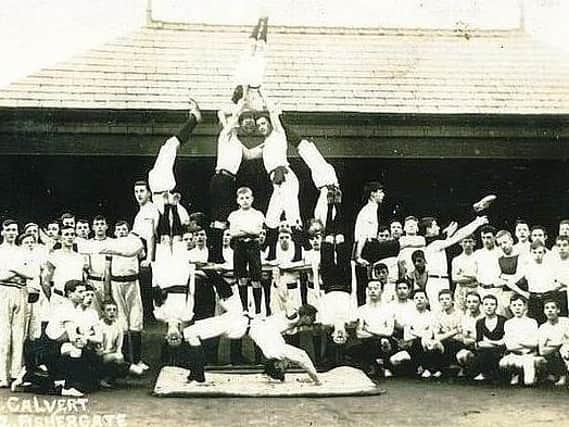Preston magistrate reprimands officer in case of stolen diamond ring


There was formed in the mid-1860s a Preston Gymnastic Club that was initially located at the Mechanics Institute in Avenham. The club prospered in those early days with the initial 50 members swelling to 190 by 1868.
There were a number of distinguished gentlemen associated with the club including the former Guild Mayor Robert Townley Parker who was the honorary president. Their annual ‘Assault At Arms’ day took place in the Theatre Royal where they put on an impressive display of gymnastic skill. By 1870 the club had acquired new premises in Derby Street that were fitted out with the latest equipment.
Advertisement
Hide AdAdvertisement
Hide AdIn early September 1870 the club was to get unwanted publicity when a youth named John Robert Brindle, a mill operative who lived on Deepdale Road, appeared at the Preston police court charged with stealing a diamond ring valued at £10 ( that is £1,200 in today’s money) the property of Henry Bannister who assisted his father in running the gym.
Mr. Blackhurst appeared for the prosecution and stated that the accused was also employed by the gym members part time in looking after equipment and carrying out chores.
According to the prosecutor in preparing for exercise on the previous Saturday afternoon he put his diamond ring into his vest pocket and hung the vest on a hook in the dressing room, which was partitioned off from the gymnasium. As he left the dressing room he noticed the accused there sweeping up. It was only the following morning that he realised his ring was missing.
James Rogerson, a pawnbroker of Church Street, told the court that late on the Saturday afternoon the accused had visited his shop and pledged the ring with him for eight shillings.
Advertisement
Hide AdAdvertisement
Hide AdThe accused having given his correct name and address and said he was pawning it on behalf of James Yates a serving soldier of Fulwood Barracks.
On the Monday morning P.C. Forest apprehended Brindle and he testified that when he asked him how he had obtained the stolen ring he said: “ I never had no ring in my possession only this,” whereupon he pulled a common brass ring out of his pocket. He then went on to say that he had taken the accused to the police station telling him on the way that he had better be telling the truth.
At this point magistrate Richard Pedder interrupted proceedings telling P.C. Forest that he had no business to talk to the accused in that manner, saying that such questions should be asked only in interview.
When Mr. Blackhurst began to question the constable’s actions he murmured a response and then fell against the side of the witness box in a faint.
Advertisement
Hide AdAdvertisement
Hide AdHe was immediately carried into an adjoining room where he soon recovered. Mr. Blackhurst then asked for a remand until the following day and it was granted.
The additional evidence submitted when the case resumed was that of James Yates who told the court he knew the prisoner, but had not sent him to pledge the ring.
Whilst the club captain J. Smith told the magistrates that Brindle had strict instructions to give up any articles that he found on the floor of the gymnasium.
After a brief consultation the magistrates brought in a guilty verdict and Brindle was sentenced to 14 days in the House of Correction with hard labour.
Advertisement
Hide AdAdvertisement
Hide AdWhat became the Preston Gymnastic and Athletic Club continued to prosper throughout the Victorian era and their introduction of a annual ‘Grand Amateur Athletic Festival’ led to many notable athletes and gymnasts emerging from their ranks.